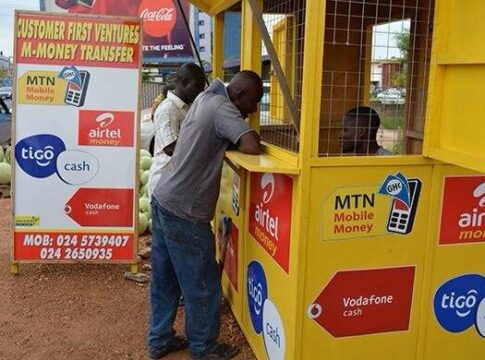President John Dramani Mahama on Wednesday signed into law a series of legislative bills aimed at scrapping some taxes such as the electronic transfer levy (e-levy), betting tax and emission tax.
And as a response to public reaction as to when to expect e-levy to be completely removed from electronic money transfers, the CEO of MTN Ghana, Stephen Blewett, has clarified that the abolition cannot take effect immediately after the presidential accent.
It has to go through regulatory approval by the Bank of Ghana (BoG).
Speaking at MTN House in Accra on Wednesday (April 2, 2025), Mr Blewett acknowledged public anticipation but stressed the need for compliance with regulatory procedures.
“I can’t abolish E-Levy until I’m told to do it. If I do it ahead of time, the Bank of Ghana will catch me. So we have a process that has to be followed and we will follow that process,” he said.
He emphasized that while the government has signaled its intention to remove the levy, telecom operators like MTN must follow official directives before making changes.
Mr Blewett also highlighted the negative impact of the E-Levy on mobile money transactions and expressed optimism that its removal would revitalize the sector.
“The reason for the abolishment of E-Levy is to encourage momentum in mobile money,” he explained.
While acknowledging that the removal is expected to boost digital transactions and financial inclusion, he assured that MTN would implement the change only after receiving official instructions.
“We will follow the process. And once it’s gone, mobile money will regain its strength.”
- Read also:
- President Mahama signs Bills to abolish E-Levy, Betting Tax, and Emissions Levy
- Parliament abolishes E-Levy - Bills awaits Presidential assent to give effect
President John Dramani Mahama has signed into law a series of legislative bills aimed at scrapping several contentious taxes, including the Electronic Transfer Levy (E-Levy), Betting Tax, and Emissions Tax.
The move fulfils a key campaign promise of the National Democratic Congress (NDC) to ease the financial strain on Ghanaians.
The signing follows the presentation of eight tax-related bills to Parliament by Finance Minister Dr. Cassiel Ato Forson on March 13, 2025.
The proposed legislation sought to repeal and amend multiple tax policies, including the Electronic Transfer Levy (Repeal) Bill, 2025; Emissions Levy (Repeal) Bill, 2025; Income Tax (Amendment) Bill, 2025; and the Earmarked Funds Capping and Realignment (Amendment) Bill, 2025.
The E-Levy, first introduced in 2022, imposed a one per cent charge on electronic transactions such as mobile money transfers and online payments. It was widely unpopular among the public, with critics arguing that it disproportionately affected ordinary citizens and businesses.
Similarly, the Betting Tax, which placed a 10 per cent charge on gross gambling winnings, faced backlash from gaming industry stakeholders who viewed it as punitive.
President Mahama’s decision to abolish these taxes is in line with his 2024 campaign pledge to eliminate them within his first 120 days in office. “This is a commitment we made to the people of Ghana, and today, we have honoured it,” he stated following the bill’s assent.

